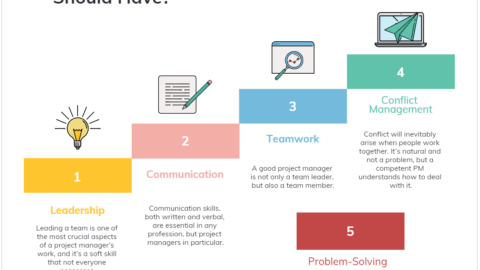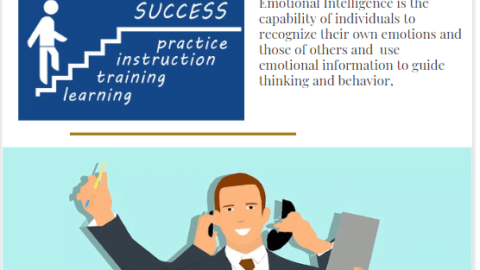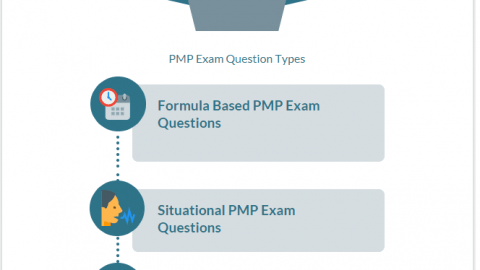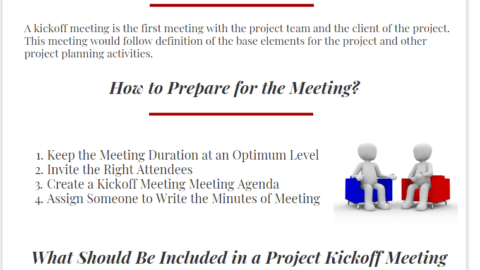What to Do When You Feel Out of Depth on a Project?
There are many reasons why you might at some point in your career feel out of depth on a project. Most project managers have been there. It can happen either as a result of a serious underlying problem on your project, which you don’t know how to resolve or because you for any other reason have a lack of confidence in your ability and professional skills to lead the project and feel unsure about the way forward. Irrespective of why you feel out of depth, it’s an uncomfortable situation that needs to be addressed.
Table of Contents
Let’s look at some of the reasons that may cause project managers to feel out of depth and examine what project managers can do to turn the situation around.
Slow Down and Breathe Deeply
When you feel out of depth, the first step to take is to slow down and take the time to thoroughly consider the situation and your lack of confidence. It may sound counterintuitive to slow down when you are close to panicking and know there are a thousand things that need to get done. But it’s the best thing you can do. The reason is that when you panic and feel out of depth, you are responding from an emotional part of your brain. This is the area of the brain that responds to threats and is in control of the fight or flight response. The problem is that when you are in your “emotional brain” you are not able to think clearly and rationally, as you will have moved away from the frontal part of your brain, where your logic resides. This means that you may be overstating the problem and that you are not able to clearly see what needs to get done.
When you notice that uncomfortable feeling of not being in control of a project, you, therefore, need to slow down. Take a step back from what you are doing and breathe deeply. When you breathe consciously and deeply you will feel more relaxed, you add oxygen to your cells you will be better able to assess the situation objectively.
Look for the Root Cause of Lack of Confidence
In this state of relative calm, ask yourself what you feel the root of the issue is? Trust your gut instinct and be honest about your feelings. When you take time to listen to your internal guidance system you will find that you already know the answer to many of your queries. Is your feeling out of depth due to the project having slipped and not meeting an important milestone? Is it due to a large issue that has cropped up, which you don’t know how to resolve? Is it due to the team not getting on and not working productively? Is it due to a comment you have received from a stakeholder who is critical of you? Or is it simply that you haven’t managed a project of this size and type before and that you are afraid that you are not the right project manager to successfully deliver it? The project may be on track but you feel it’s largely down to luck and you fear it might derail at any moment.
What you are initially trying to understand is if there is a real and tangible issue on the project that needs to be resolved, or if your discomfort is more of a perceived issue related to your lack of confidence, professional skills and experience as a project manager. If you are unsure about the answer, seek feedback from the team and stakeholders and talk things through with a trusted colleague. Whatever you do, don’t keep it to yourself, as you could be worrying unnecessarily. Besides, who is to say that the project managers need to have an answer to everything? The best projects are collaborative and have teams that find joint solutions to issues that crop up. So tap into the knowledge of your team. Ask them how they feel about the project, what they worry about and how they believe the team could be working more effectively. Those questions will give you immense insight into the state of the project and let you know if any immediate action needs to be taken.
In addition to asking your team, you should ask your stakeholders a similar set of questions that enable them to give you feedback about the project. You can also ask them if they feel sufficiently informed about progress on the project as that in itself could be a source of discontent.
Finally, talk through the feedback you receive with a trusted colleague who can serve as a sounding board and help you put the situation in perspective. When you are too close to the problem it can be difficult to view it objectively – in particular, if you haven’t been in this situation before. An experienced colleague or a mentor will be able to listen to your thoughts and feelings and help you understand what the best set of actions are for moving forward.
Get Back to Basics and Put in Place Fundamental Controls
If it turns out that your discomfort and lack of confidence are rooted in tangible issues and that your project is beginning to slip, you will have to get back to basics and ensure that all the fundamental controls are in place on your project. By implementing these controls you can instantly put yourself and your team back in the driver’s seat. To get the best results, consult your team and seek advice about what needs to get done. There is nothing more powerful than shared ownership, and that can only happen if you involve people in the work they will be doing and discuss how it will be controlled and reported on. Here are some of the most basic controls that must be in place:
- Have a clear definition of the project – project managers should ensure that the purpose of the project is clear and that everyone understands how the deliverables and benefits will be measured. Also, check that you have a common understanding with the client about what is in and out of scope.
- Stakeholder communication – make sure that you know who all the stakeholders are and that you have a plan for how to keep them updated on a weekly or fortnightly basis. Identify your top five stakeholders and ask them how they would like you to keep them informed.
- Milestone plan with clear ownership – in order to stay in control of the project, project managers should have a one-pager milestone plan, which has been developed in collaboration with the team. The best milestone plans contain an element of prototyping, allow for the delivery of early “quick-wins” and have clear ownership of each milestone.
- Change control – many projects fail or begin to slip when extra features are added to the scope in an uncontrolled way. Make sure that every scope change is recorded and that the impact on the project is analyzed and acted upon. To help you keep track of scope, make use of a Requirements Traceability Matrix.
- Risk management – anticipating what could go wrong on the project and doing something about it could be what saves your project from disaster. Make sure the entire team contributes to risk identification and analysis by organizing regular risk workshops.
- Budget tracking – it’s essential to have a clear way of tracking actual costs compared to budget. On a monthly basis, you will also need to assess if you have enough budget left to finish the project.
Strengthen Your Professional Skills to Overcome Lack of Confidence
If, on the other hand, it turns out that you feel out of depth – not because of a specific project issue – but because you lack experience, professional skills and have a lack of confidence in your abilities to lead the project, you will need to work hard to strengthen your mental attitude and to build up your professional skills as that will help increase your confidence.
What you need to remember is that we only grow and learn when we stretch ourselves. We expand when we face new situations and when we run larger and more complex projects with people we haven’t worked with before. It can be very challenging to find yourself in the midst of a new demanding experience, but once you’re through you can look back at all the things you learnt and be proud of your achievements. Why not take a moment right now to remind yourself of all the times in the past when something felt scary but it turned out well. I would also like you to write down all the qualities you know you have and list the things you know that you are doing well. When you remind yourself of your talents and professional skills, it builds you up and gives you strength.
Finally, I’d advise you to:
- Strengthen your professional skills by taking a project management qualification such as a PMP.
- Join some of the many project management groups on LinkedIn where you can read more about common project management problems and how to overcome them.
- Read as many project management blogs as possible and listen to podcasts. To get started, visit my website and download my free PM resources.
- Find a mentor whom you can meet on a regular basis and get advice from. Your mentor can either be from inside or outside of your organization.
- Set up a forum in your company where project managers can come together and share experiences and support each other.
But above and beyond all, keep close to your client, understand their real needs and what it takes to serve them. If your client is happy, you will be happy.
Art of Projects with Executive Coach and Leadership Expert Susanne Madsen
Susanne Madsen is an internationally recognised project leadership coach, trainer and consultant. She is the award-winning author of The Power of Project Leadership (now in 2nd edition) and The Project Management Coaching Workbook.
Susanne is the Founder and Director of Susanne Madsen International Ltd which is a UK company governed by English law.










